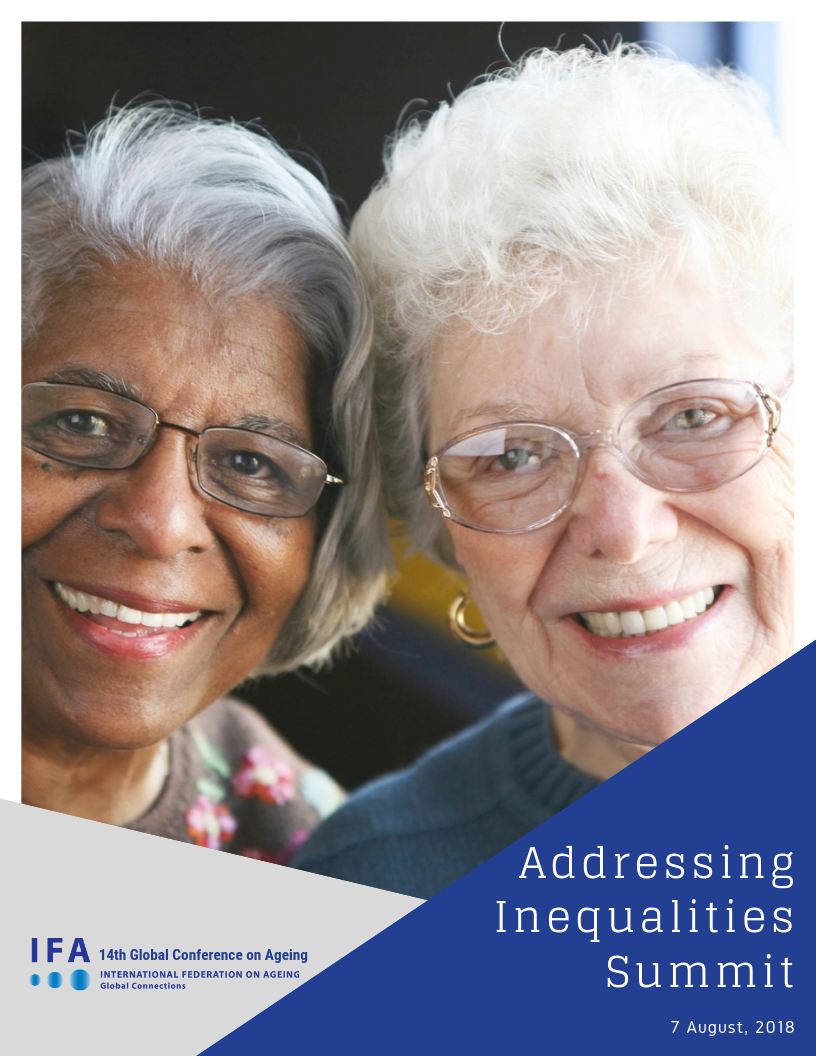Addressing inequalities within a rapidly ageing global population
Organizations committed to advancing the rights of older people around the world have made tremendous strides, as demonstrated by the breadth and quality of work presented at the IFA 14th Global Conference on Ageing. Advancements toward promoting healthy ageing, developing and maintaining age-friendly cities and communities, and new initiatives to combat ageism have all emerged in recent years and continue to improve the health and wellbeing of older people globally.
Yet, global inequalities persist that threaten these improvements. Society often understates the fact that life experiences significantly impact, and at times jeopardize, the health and ability of older people to meet their basic needs. Also, certain subpopulations of older people experience additional marginalization, which is known to further impact their lives.
 In August 2018, the IFA in collaboration with the Government of Canada, hosted a pre-conference Addressing Inequalities Summit that fostered discussions among participants interested in and committed to eliminating inequalities experienced by older people within marginalized subpopulations. The summit explored the experiences of older women, older Indigenous people, older prisoners, older immigrants, older people living in rural and remote areas, older homeless people and older LGBTQ2 people.
In August 2018, the IFA in collaboration with the Government of Canada, hosted a pre-conference Addressing Inequalities Summit that fostered discussions among participants interested in and committed to eliminating inequalities experienced by older people within marginalized subpopulations. The summit explored the experiences of older women, older Indigenous people, older prisoners, older immigrants, older people living in rural and remote areas, older homeless people and older LGBTQ2 people.
Building on the new learnings gained during the event, a post-summit report was created that highlights the experiences of identified groups of older people, successful best practices and next steps for addressing inequalities experienced by marginalized subpopulations of older people. The full report can be accessed here.
The themes and next steps identified within the Addressing Inequalities Summit report have the potential to be applied to all research impacting older people. As the IFA and other organizations move into 2019, working towards promoting the rights of older people globally, it is critical that a conscious effort is made to ensure the diverse experiences of marginalized older people are included in policy and practice.


